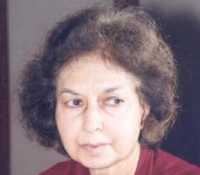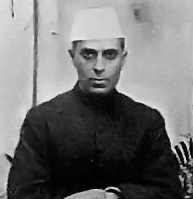Gita Sahgal: Difference between revisions
Epeefleche (talk | contribs) m Quick-adding category Indian film producers (using HotCat) |
Epeefleche (talk | contribs) →External links: add oe |
||
| Line 119: | Line 119: | ||
*[http://www.spectator.co.uk/martinbright/5759197/gita-sahgal-a-statement.thtml "Gita Sahgal: A Statement"], 7 February 2010 |
*[http://www.spectator.co.uk/martinbright/5759197/gita-sahgal-a-statement.thtml "Gita Sahgal: A Statement"], 7 February 2010 |
||
*[http://www.human-rights-for-all.org/ Human Rights for All website] |
*[http://www.human-rights-for-all.org/ Human Rights for All website] |
||
*[http://www.timesonline.co.uk/tol/comment/columnists/david_aaronovitch/article7019817.ece How Amnesty chose the wrong poster-boy], [[David Aaronovitch]], ''[[The Times]]'', 9 February 2010 |
|||
*[http://www.human-rights-for-all.org/spip.php?article11 Letter to Amnesty from [[Denis MacShane]], Member of [[British Parliament]]], 10 February 2010 |
*[http://www.human-rights-for-all.org/spip.php?article11 Letter to Amnesty from [[Denis MacShane]], Member of [[British Parliament]]], 10 February 2010 |
||
Revision as of 07:44, 17 February 2010
Gita Sahgal | |
|---|---|
| Born | India |
| Occupation(s) | Writer, journalist, film director, human rights activist. |
| Employer(s) | Amnesty International; Head of Gender Unit |
| Known for | Suspended by Amnesty International as head of its Gender Unit, after criticizing AI for its links with Moazzam Begg |
| Parent | Nayantara Sahgal (mother) |
| Relatives | Vijayalakshmi Pandit (grandmother); Jawaharlal Nehru (great uncle) |
Gita Sahgal, born in India,[1] is a writer and journalist on issues of feminism, fundamentalism, and racism, a director of prize-winning documentary films, and a human rights activist.[2]
Sahgal has battled suppression of women by fundamentalists.[3] She has been an active member of Southall Black Sisters and Women against Fundamentalisms. She has also been head of Amnesty International's gender unit.[4]
Family

novelist Nayantara Sahgal

former Indian Prime Minister Nehru
Sahgal is originally from India, and now lives in England.
She is the daughter of novelist Nayantara Sahgal. She is also the granddaughter of former Indian Prime Minister Jawaharlal Nehru’s sister Vijayalakshmi Pandit.[5][6]
Career
Writing
Among her various writings, in 1992, she contributed to and co-edited Refusing holy orders : women and fundamentalism in Britain with Nira Yuval-Davis.
Film producer
In 2002 she was the producer of "Tying the Knot". The film was commissioned by the U.K.'s Foreign and Commonwealth Office's Community Liaison Unit, which was set up to handle the problem of British victims of forced marriage who have been, or may be, taken abroad to marry against their will. The educational video on marriage and freedom of choice was produced for use in schools, youth groups, and other organisations working with young people, examines marriage across various cultures, and was designed to promote discussion on the issues it raises.[7]
She also made a film for Despatches, one of British TV’s main investigative documentary programs, on the subject of Kiranjit Ahluwalia, a Punjabi woman brought to the UK by arranged marriage who was abused by her husband, set him on fire when he was drunk and asleep--killing him, and won the subsequent legal battle for her freedom.[8]
Rape as a weapon of war
Commenting on the use of rape in wars, Sahgal said in 2004 that it is a mistake to think such assaults are primarily about "spoils of war" or sexual gratification. She said rape is often used in ethnic conflicts as a way for attackers to perpetuate social control and redraw ethnic boundaries. "Women are seen as the reproducers and carers of the community," she said.[9]
Prostitution and peacekeeping efforts
Salgahl spoke out in 2004 with regard to the fact that prostitution and sex abuse crops up wherever humanitarian intervention efforts are set up. She observed: "The issue with the UN is that peacekeeping operations unfortunately seem to be doing the same thing that other militaries do. Even the guardians have to be guarded."[10]
Amnesty International controversy; Moazzam Begg and Cageprisoners

She came to wide public attention in February 2010, when she was suspended by Amnesty International as head of the organisation's Gender Unit, after she criticized Amnesty for its high profile associations with Moazzam Begg, a figurehead for a campaign group called Cageprisoners.[11]
She called the links "a gross error of judgment", and said it was wrong to ally with "Britain's most famous supporter of the Taliban".[12] Cageprisoners has championed, among others, al-Qaeda member Anwar al-Awlaki, linked to three of the 9/11 bombers, the Fort Hood shooter, and the Christmas Day 2009 bomber. Sahgal argued that by associating itself with Begg and Cageprisoners, Amnesty is risking its reputation on human rights.[13][14][15]
The Sunday Times published an article about Amnesty's association with groups that support the Taliban and promote "Islamic Right" ideas.[16] Her views were quoted.[16] Within a few hours of the article being published, Amnesty suspended her.[16]
Sahgal issued a statement in which she explained further that she felt that Amnesty was risking its reputation by associating with and thereby politically legitimizing Begg, because Cageprisoners "actively promotes Islamic Right ideas and individuals".[16] She headed off the argument that the issue was Begg's rights, by saying she has always opposed the illegal detention and torture of Muslim men, and been "horrified and appalled" by the treatment of people like Begg. But that the issue is not about Begg’s "freedom of opinion, nor about his right to propound his views: he already exercises these rights fully as he should. The issue is ... the importance of the human rights movement maintaining an objective distance from groups and ideas that are committed to systematic discrimination and fundamentally undermine the universality of human rights."
Her statement also said in part:
- A moment comes, which comes but rarely in history, when a great organisation must ask: if it lies to itself, can it demand the truth of others? ... Amnesty ... has sanitized the history and politics of ... Begg and completely failed to recognize the nature of ... Cageprisoners....
- I sent two memos to my management asking a series of questions about what considerations were given to the nature of the relationship with ... Begg and ... Cageprisoners. I have received no answer.... Amnesty has created the impression that Begg is not only a victim of human rights violations, but a defender of human rights....
- I have been a human rights campaigner for over three decades, defending the rights of women and ethnic minorities, defending religious freedom and the rights of victims of torture, and campaigning against illegal detention and state repression. I have raised the issue of the association of Amnesty International with groups such as Begg’s consistently within the organisation. I have now been suspended for trying to do my job and staying faithful to Amnesty’s mission to protect and defend human rights universally and impartially.[16]
Amnesty responded on its website:
[Sahgal] was not suspended ... for raising these issues internally... [Begg] speaks about his own views ..., not Amnesty International’s... Sometimes the people whose rights we defend may not share each others views–but they all have human rights, and all human rights are worth defending.[17]
Denis MacShane, a Member of the British Parliament, wrote Amnesty protesting its victimizing: "one of its most respected researchers because she rightly called into question Amnesty’s endorsement of Mozzam Begg whose views on the Taliban and on Islamist jihad stand in total contradiction of everything Amnesty has fought for."[18] He called "Kafkaesque" the fact that Amnesty--"the very organisation meant to defend human rights"--would threaten the career of Saghal for her having exposed "an ideology that denies human rights".[18]
An organization called Human rights for All formed in her defense.[19]
In February 2010, leaked extracts from an internal Amnesty memo were published by The Sunday Times in which Amnesty’s Asia-Pacific director Sam Zarifi echoed concerns raised by Sahgal. Zarifi said Amnesty "did not always sufficiently distinguish between the rights of detainees to be free from torture and the validity of their views", adding that the organization "did not always clarify that while we champion the rights of all — including terrorism suspects, and more important, victims of terrorism — we do not champion their views”.[20]
Sahgal's mother, Nehru’s niece novelist Nayantara Sahgal, said she was:
proud of Gita for her very correct and courageous stand. Gita had been taking up the matter for a couple of years now, but after not having received a response she decided to go public — which was a very brave thing to do. Without going into his credentials, Amnesty has been supporting Begg, legitimising him, making him a partner and sponsoring his tour of Europe. They should at least have checked his credentials. It simply gives them a bad reputation.[21]
Notes
- ^ Suroor, Hasan, "Amnesty in row over “collaborating” with pro-jehadis", The Hindu, 9 February 2010, accessed 16 February 2010
- ^ [1]
- ^ [2]
- ^ [3]
- ^ [4]
- ^ [5]
- ^ "Baroness Amos launches Tying the Knot, an educational video on marriage and freedom of choice," M2 Presswire, 11 March 2002, accessed 16 February, 2010
- ^ Joshi, Ruchir, " UNPROVOKED-A historic moment swallowed by the box office," The Telegraph, June 10, 2007, accessed February 16, 2010
- ^ [6]
- ^ Sex charges haunt UN forces; In places like Congo and Kosovo, peacekeepers have been accused of abusing the people they're protecting," Christian Science Monitor, November 26, 2004, accessed February 16, 2010
- ^ Gupta, Rahila, "Double standards on human rights; Where does Amnesty International stand on women's rights after suspending Gita Sahgal for criticising links with Moazzam Begg?," The Guardian, 9 February 2010, accessed 11 February 2010
- ^ Aaronovitch, David, "How Amnesty chose the wrong poster-boy; Collaboration with Moazzam Begg, an extremist who has supported jihadi movements, looks like a serious mistake," The Times, 9 February 2010, accessed 10 February 2010
- ^ "Amnesty chief suspended after attacking group's links to 'Britain's most famous Taliban supporter'", Daily Mail, 9 February 2010, accessed 10 February 2010
- ^ Bright, Martin, "Gita Sahgal: A Statement", Spectator, February 7, 2010, accessed 10 February 2010
- ^ "Joan Smith: Amnesty shouldn't support men like Moazzam Begg; A prisoner of conscience can turn into an apologist for extremism," The Independent, 11 February 2010, accessed 11 February 2010
- ^ a b c d e Sahgal, Gita (7 February 2010). "Gita Sahgal: A Statement".
{{cite web}}:|access-date=requires|url=(help); External link in|coauthors=|url=(help); Unknown parameter|coauthors=ignored (|author=suggested) (help) - ^ "Amnesty International on its work with Moazzam Begg and Cageprisoners," 11 February 2010, accessed 11 February 2010
- ^ a b MacShane, Member of British Parliament, Denis (10 February 2010). "Letter To Amnesty International from". Retrieved 17 February 2010.
- ^ [7].
- ^ Suroor, Hasan, "Another Amnesty official questions its links with jihadi group ," The Hindu, 15 February 2010, accessed 15 February 2010
- ^ Roy, Esha, "Ties with Taliban supporter a damage to Amnesty reputation, says Nehru kin", Indian Express, 17 February 2010, accessed 15 February 2010
External links
- "Gita Sahgal: A Statement", 7 February 2010
- Human Rights for All website
- How Amnesty chose the wrong poster-boy, David Aaronovitch, The Times, 9 February 2010
- Letter to Amnesty from Denis MacShane, Member of British Parliament, 10 February 2010
- Amnesty International
- Human rights activists
- Indian human rights activists
- Women's rights activists
- Indian women's rights activists
- English human rights activists
- Rape victim advocates
- Nehru-Gandhi family
- Indian people
- Kashmiri people
- 20th-century Indian people
- 21st-century Indian people
- Indian writers
- Indian journalists
- Indian film producers